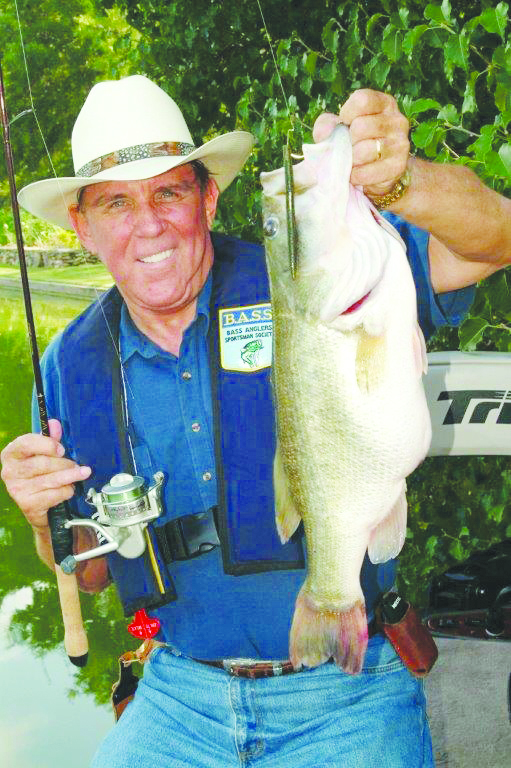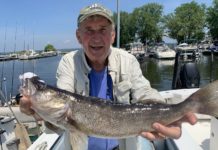By GLYNN HARRIS
Have you ever had the experience of meeting someone special, a real mover and shaker and recall the aura you sensed around that person? I have on two occasions.
I was at a conference years ago when our keynote speaker was TV mogul, Ted Turner. There is a lot about the quirky Turner with which I don’t agree but standing in a group of four or five other writers with Turner in our midst was an experience I’d never had before; he radiated something hard to describe.
I had a similar experience recently at the annual convention of the Southeastern Outdoor Press Association in Huntsville, Alabama, when I met and got to visit with Ray Scott, the father and founder of the Bass Anglers Sportsman’s Society, or “B.A.S.S”. There was a sense of something about Scott that was sort of Ted Turner-ish with one notable exception. Turner came across as cold and aloof; Scott is warm, friendly and cooperative.
I sat down with him and picked his brain about the phenomenal organization he birthed, one that today boasts half a million members and sponsors a tournament trail that culminates each year with the Bass Masters Classic where the best of the best compete for half a million dollars in prize money.
“I was on a fishing trip to Jackson, Mississippi, in 1967 and while sitting in my hotel room waiting out a storm, I was flipping channels and realized that there were programs featuring just about every sporting event; yet not one program had anything to do with fishing. It occurred to me what an untapped market bass fishing could be and a plan began taking shape in my mind; why not start a competitive bass fishing circuit,” Scott, who was an insurance salesman at the time, recalled.
To promote his idea, Scott created BASS, set the date for the first tournament in 1967 on Beaver Lake in Arkansas and to his surprise, over 100 competitors showed up.
“I charged a $100 entry fee with the winner, Stan Sloan, taking home a check for $2.000,” Scott said.
North Louisiana and the nation watched the tournament live on ESPN from the Red River around Shreveport two years ago when Skeet Reese took home a check for $500,000 plus an equal amount in endorsements.
Scott was also the author of another innovative idea, the concept of “catch and release” fishing.
“In 1969, BASS was growing with some 15,000 members and a problem I’d seen for years was bothering me; the pollution of our rivers and lakes. With the backing of B.A.S.S., I filed suit against 214 companies that were violating the Federal Refuse Act and we won,” he said.
“I got invited to attend a fly fishing conclave in Aspen, Colorado to speak to the group. They took me out to what they called a ‘river’ — it looked like a little creek to me — to fly fish, something I’d never done. The guys were all lined up with their fancy vests and fly rods when one of the guys at the end of the line let out a yell; he’d hooked a trout.
“All the fishermen moved down to watch him land his ‘prize’, a little trout about 10-inches long. Then he gently removed the hook and carefully released the fish and you never heard such taking on from the other fishermen. On the flight home, a light bulb went off in my head; we’re killing too many bass so from watching that one little trout being released,” said Scott, “I started the ‘catch and release’ program fishing tournaments religiously follow even now.
“The biggest value to a fisherman today is when he’s out by himself, hooks a 6 pound bass and realizes it’s his fish, he can do what he wants with it and chooses to release it. That’s the moment he is at one with the fish and will raise all manner of heck when he sees a polluter dumping crap on his fish.”
Ray Scott and B.A.S.S. — what a success story!
(This is a repeat of a column I wrote 12 years ago. Sadly, Ray Scott passed away this week at the age of 88. This pioneering giant of the bass fishing industry will be sorely missed.)
Credit: Source link































